Does Sticking to a Sleep Schedule Really Help? I Followed One for 30 Days to Find Out
I went to bed and woke up at the same time every day; extra energy was just one of the reasons it was awesome.
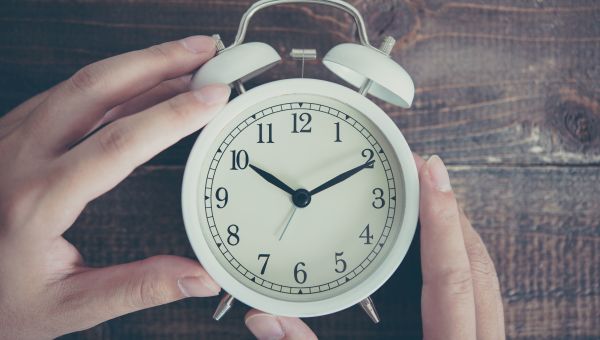
I’ve always had problems getting up in the mornings. And despite being a sleep editor (that’s right—I spend many hours writing and researching about circadian rhythms, melatonin and much more), I haven’t had much luck getting in a regular routine myself.
Research shows that sticking to a sleep schedule can help regulate your circadian rhythm, or sleep-wake cycle; consistency will help you fall asleep at night—and stay asleep through the night.
I wanted to test the theory out for myself—for 30 days, my goal was to go to bed at the same time and wake up at the same time (even on the weekends) and hopefully reap some of these benefits.
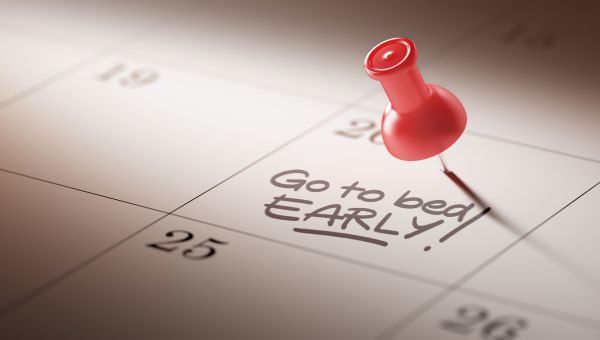
What I did and why
The first steps: pick a bedtime and wakeup time.
10 p.m. sounded like a reasonable bedtime—there would be enough time to accomplish everything I usually do in the evenings like cooking dinner, walking our dog McCoy and watching our favorite television shows like Stranger Things, but it was late enough that I could still enjoy the occasional dinner with friends after work if I wanted to.
For the wakeup time, 5:45 a.m. fell within the suggested sleep time for adults—the National Sleep Foundation recommends seven to nine hours each night—and it was early enough that’d I be able to accomplish a workout and prep for the day ahead before work.
Once I had my sleep and wake times figured out, I set my alarm and got started. I kept a journal throughout the process and recorded how well I slept using Sharecare (a free app for iOS and Android) so I could share the ups and downs.
Here’s what I learned (the good, the bad and the ugly) plus whether or not I’m going to continue it going forward.
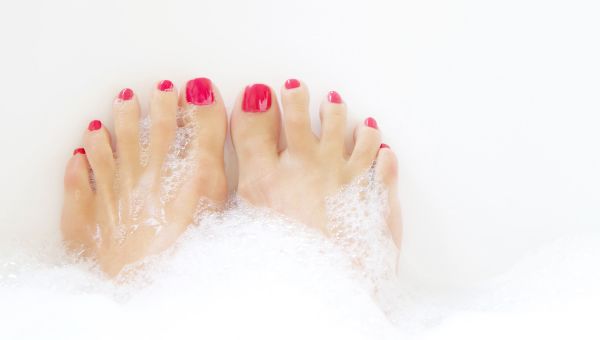
I learned a bedtime routine was essential
It may sound high-maintenance, but there’s research to back up a healthy bedtime routine. I learned that if I wanted to fall asleep close to the same time each night, I’d have to adopt better habits, for instance, I took Epsom salt and lavender baths on the regular.
If I could take a bath before bed every night, I would. But in reality, I was only able to do it one or two nights a week. I have some lower back pain, so the Epsom salts helped soothe my sore muscles so I was more comfortable in bed. I opted for lavender salt baths because I found they calmed my mind and helped me sleep better.
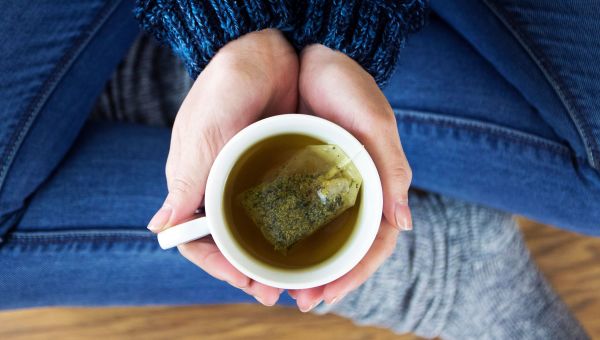
Bedtime tea helped me get into sleep mode
Also part of my bedtime routine: tea. I’m a recent tea addict (I’ve switched from diet soda to tea in the last few months), so I figured why not try a calming tea before bed to see if it helps me fall asleep. Packed with flavonoids and antioxidants, chamomile tea may lower anxiety levels, ease inflammation and lower cholesterol in animals, but many believe that it can have these same effects on humans, too.
I drank a tea with a combination of licorice root, cinnamon, spearmint, chamomile and other ingredients and much to my surprise, not only was it absolutely delicious, it did help soothe me as I prepared for bed. Maybe it was the warmth of the tea that calmed me or maybe it was the chamomile, either way—it got me in the sleeping mood.
There are so many kinds of bedtime tea to enjoy a few minutes before turning in for the night, so find one you like and give it a whirl. Grocery stores, local markets and online retailers all have a variety of options.
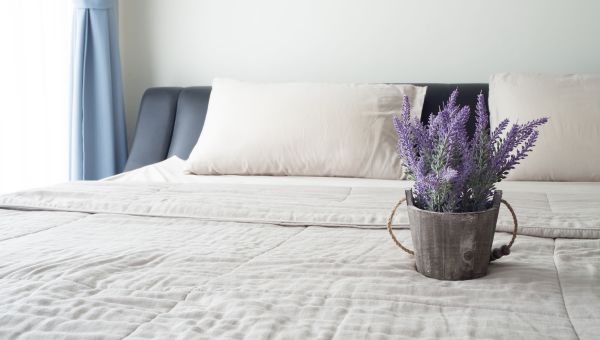
I jumped on the lavender herb bandwagon
When inhaled, lavender may encourage sleep and minimize symptoms of anxiety, depression and fatigue. So, I figured I might as well add it to my new bedtime routine. While I was waiting for our oil diffusers to arrive, I improvised with lavender oil spray.
Every night before bed, I spritzed the mist on my neck and wrists, and some nights, my pillow. The soothing scent not only smelled good, it felt cool on my skin and helped me drift off to sleep.

White noise was a lifesaver
I never thought our recent gift from a friend—the Google home—would come in handy for sleep. Every night as I crawled into bed, I said “OK, Google, play white noise,” which prompted it to play white noise for an hour.
We let our yellow lab McCoy sleep with us at night (a bad habit we know we need to break), so the white noise helps block any outdoor sounds that usually send her into protection mode, AKA a barking fit. I’m a light sleeper too, so having the white noise on kept me from hearing nighttime noises like the heat clicking on.
But you don’t have to have a smart home device—there are many different types of white noise machines and phone applications that also play white noise and calming nature sounds. This was a critical part of my bedtime routine, and one trick I’ll definitely continue to do now that the challenge is over.
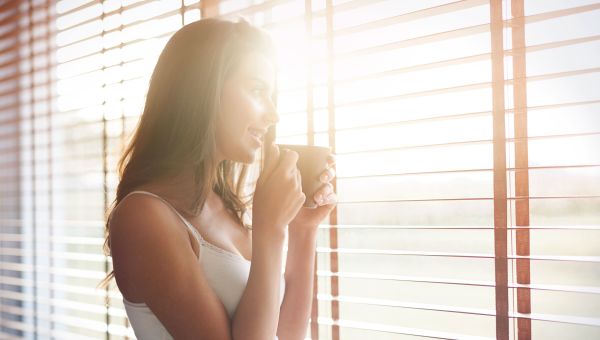
To get out of bed, I had to get creative with my alarm
When starting this challenge, I knew that my number one problem was going to be getting out of bed in the mornings, so I focused on finding something that would motivate me to get up. You’ve heard that walking across your room to turn off your phone or alarm can help, so I used that idea, coupled with my recent smart home device to develop a successful way to wake up.
I was able to set an alarm for 5:45 a.m., and in the morning, I would actually have to speak to the Google Home in order to turn it off. I learned that having to do something besides just hitting snooze was a surefire way to get my mind and body moving so I could wake up. Once I was up, it seemed silly for me to go back to sleep.
Whether it’s plugging your alarm in on the other side of the room (or even an adjoining room or bathroom), investing in a smart device that makes you talk to it to turn it off, a light alarm clock that simulates a sunrise or a workout device that makes you complete 30 bicep curls before you turn it off, think outside of the box. Moving and talking first thing may keep you from getting back under the covers, or at least it did for me.
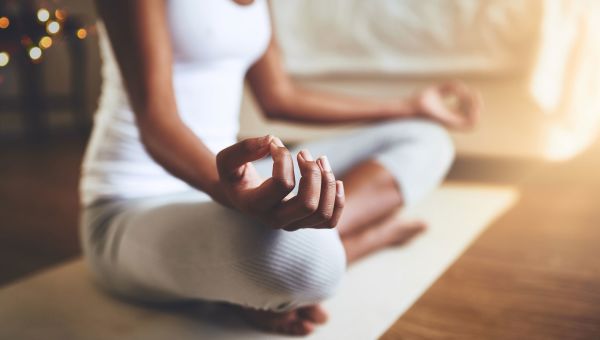
It turns out, I can accomplish a lot in the mornings
I’ve always envied people who talk about their calm, quiet mornings sipping coffee and writing out to-do lists, and now I’ve become one of those people.
I switched to morning workouts about two years ago and ever since then, I’ve felt extremely rushed in the mornings. By the time I get to the gym for strength training or outside for a run or walk, I am stressed and pressed for time.
Waking up at 5:45 allowed me to start my day off on the right foot, without all of the rushing or stressing. I made my usual latte, grabbed a banana and settled in at the kitchen table to read the day’s health news before exercising. I was also able to get a head start on my work tasks for the day, prep my breakfast and straighten up the house—all before showering! I even managed to squeeze in a few 5-minute meditation exercises a couple of days a week, too.
Feeling accomplished and organized better prepared me for the day ahead, and in turn, lowered my stress and anxiety levels. I wasn’t even in my usual panic as I drove off to work.

I had more energy throughout the day
Good quality sleep at night can improve your focus and alertness during the day, and while I was somewhat sluggish right when I woke up for the first couple of days, after that, I can truly say my energy levels were high throughout the day, even in the afternoon when I tend to get sleepy. What’s more, my energy levels peaked from around 8 in the morning to 4 in the afternoon, and good thing—those are the hours I’m at work.
However, by the time 9 p.m. rolled around, I was really ready for bed. Some nights, it felt like I wouldn’t even make it until 10.

It was hard to stick to on the weekends and during the holidays
Although the benefits completely outweigh the cons of a sleep schedule, it wasn’t all fun and games. During the Thanksgiving holiday, try telling your family that you have to turn in at 10 p.m. (even before they started watching Elf) and that your alarm is going to go off before 6. Truth be told, it was impossible to stick to the exact schedule the three nights I was away from home, but I made sure to get 7 to 8 hours of sleep each night, even if the timing wasn’t exactly on schedule.
Because it was only a few days—and I stuck with a healthy amount of sleep—I didn’t have much trouble getting back into the groove when I was back at home.
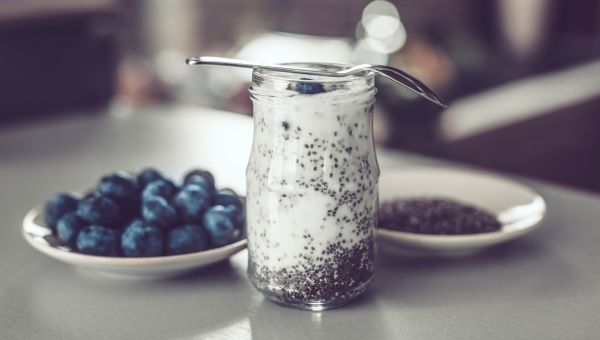
I made healthier decisions
Since I was having to go to bed at 10 and wake up at the crack of dawn, it was easier for me to forgo late night social outings, which meant I didn’t have those two glasses of wine and greasy happy hour foods. I was also up early enough to go to the gym each morning, and I had plenty of time to make a healthy breakfast, too. The benefits of eating a healthy breakfast are endless—doing so can reduce your hunger later in the day, encourage you to eat healthier in general and boost your energy levels. Here are some of my tried-and-true favorites:
- Almond milk yogurt topped with chia seeds, hemp hearts, pecans, blueberries and gluten-free granola (the more the merrier, right?)
- Two scrambled eggs, two all-natural pieces of chicken breakfast sausage, roasted red potatoes and a small bowl of blueberries
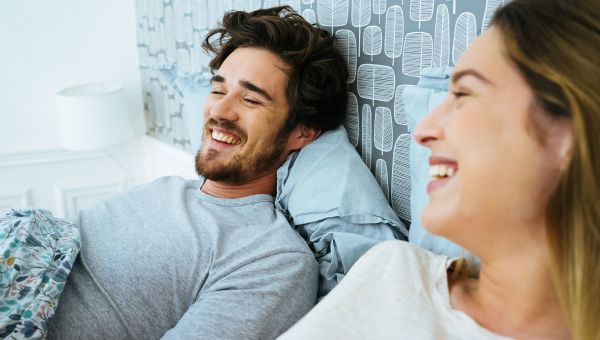
It really helped that my husband stuck to the same schedule, too
Truth be told, I’m not so sure that I would have done as well with this challenge if my husband hadn’t jumped on board, too. Having someone to wake up with and hold me accountable definitely motivated me to get up each and every morning. And in general, it was easier for us to be on the same morning and evening schedules.
While my husband didn’t always fall into bed at 10 every night, he made a conscious effort to quietly slip into bed when he did come to sleep, and he started getting ready for bed before coming upstairs so that he wouldn’t wake me.
If you’re looking to change up your sleep schedule, I’d encourage you to onboard your partner or even a friend who you can call or text. Not only will they be up and at ‘em every morning to chat, you can reach out to them and talk through the parts of the sleeping schedule that work for you (and what doesn’t) and any morning and nightly routines that have helped you stick to the plan.
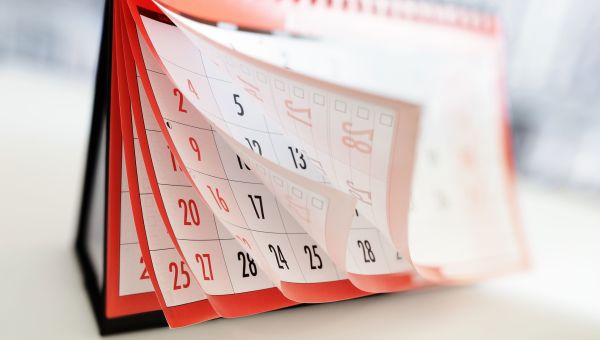
So, what am I going to do now?
Sticking to a sleep schedule is hard—there’s no way around it. But after having done it, I’m here to tell you that it’s so worth it. While I certainly took some time off to sleep in and go to bed later during the holidays, I’m back on my sleep schedule starting in the new year. I may adjust my timing a bit—I think 10 p.m. is still my perfect bedtime, but I may extend my wake time to 6 a.m. for a few minutes of extra rest.
I’m looking forward to accomplishing a lot in the morning, like my 30-minute workouts (I’m trying Kayla Itsines’ 12-week BBG plan that combines strength training, HIIT, cardio and stretching), cleaning and some work. And I’m definitely not complaining about keeping my calming bedtime routine—my goals are to devote more time to meditation and unplugging.
More On


video

article
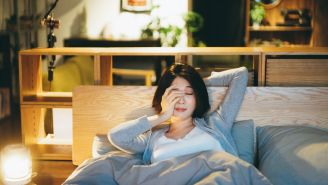
slideshow


video


video
